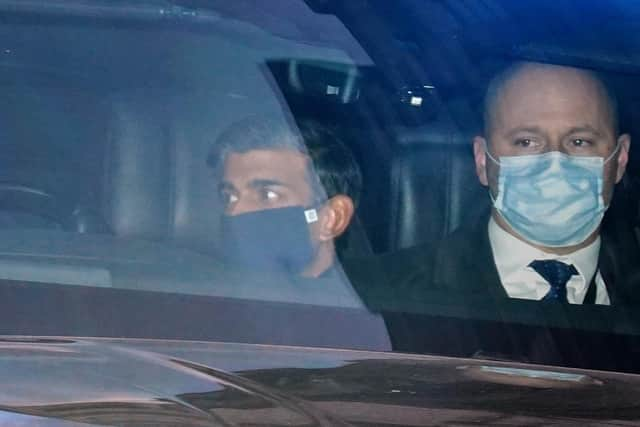Rishi Sunak accused of 'failing to tackle Tory cost-of-living crisis' by SNP as Bank of England boss warns inflation pressure into 2023
The Bank’s governor told MPs on the Treasury Select Committee that financial markets now do not expect energy prices to start easing back until the the second half of 2023.
The warning comes with Britain’s rate of inflation having rocketed to its highest level for nearly 30 years as the cost-of-living squeeze intensifies, according to official figures.
Advertisement
Hide AdAdvertisement
Hide AdSNP shadow chancellor Alison Thewliss said the Chancellor must "spend less time plotting his Tory leadership bid and more time delivering the urgent help families need”.


"Under the Tories, the UK has the worst levels of poverty and inequality in north west Europe, and the highest in-work poverty this century,” she said.
"Now the Chancellor is making millions of families even poorer through damaging Tory cuts and unforgivable inaction."The Chancellor must deliver an emergency financial package to help families by reversing Tory cuts to Universal Credit, delivering a low income energy payment, matching the Scottish Child Payment UK-wide, and introducing a real living wage.”
Until a few months ago, wholesale gas prices had been expected to start falling next summer.
Mr Bailey said it was a “big shift” and suggested it may impact the Bank’s expectations that higher levels of inflation would be only temporary.
Part of the change in gas price expectations is down to rising tensions between Russia and Ukraine, Mr Bailey said.
He told MPs: “I have to be honest with you, that’s a very great concern.”
The Office for National Statistics (ONS) said Consumer Prices Index (CPI) inflation jumped from 5.1 per cent in November to 5.4 per cent in December – the highest since March 1992, when it stood at 7.1 per cent.
Advertisement
Hide AdAdvertisement
Hide AdMost economists had expected inflation of 5.2 per cent in December.
The ONS said inflation was pushed higher by food and non-alcoholic drinks prices last month, with costs also rising for restaurants and hotels, furniture and household goods, as well as clothing and footwear.
Household finances are being squeezed across the board as gas and electricity tariffs have also seen staggering rises and supply chain problems are pushing up costs across the economy.
The Bank of England has forecast inflation to hit 6 per cent in April.
Policymakers raised interest rates last month, from 0.1 per cent to 0.25 per cent, to try to cool rampant inflation, and many experts expect another rise possibly as soon as early next month.
The figures come amid mounting pressure on the UK Government to help with eye-watering rises in gas and electricity bills, with fears that many vulnerable people are choosing between heating their homes and buying food.
Mr Sunak said: “I understand the pressures people are facing with the cost of living and we will continue to listen to people’s concerns, as we have done throughout the pandemic.”
Comments
Want to join the conversation? Please or to comment on this article.